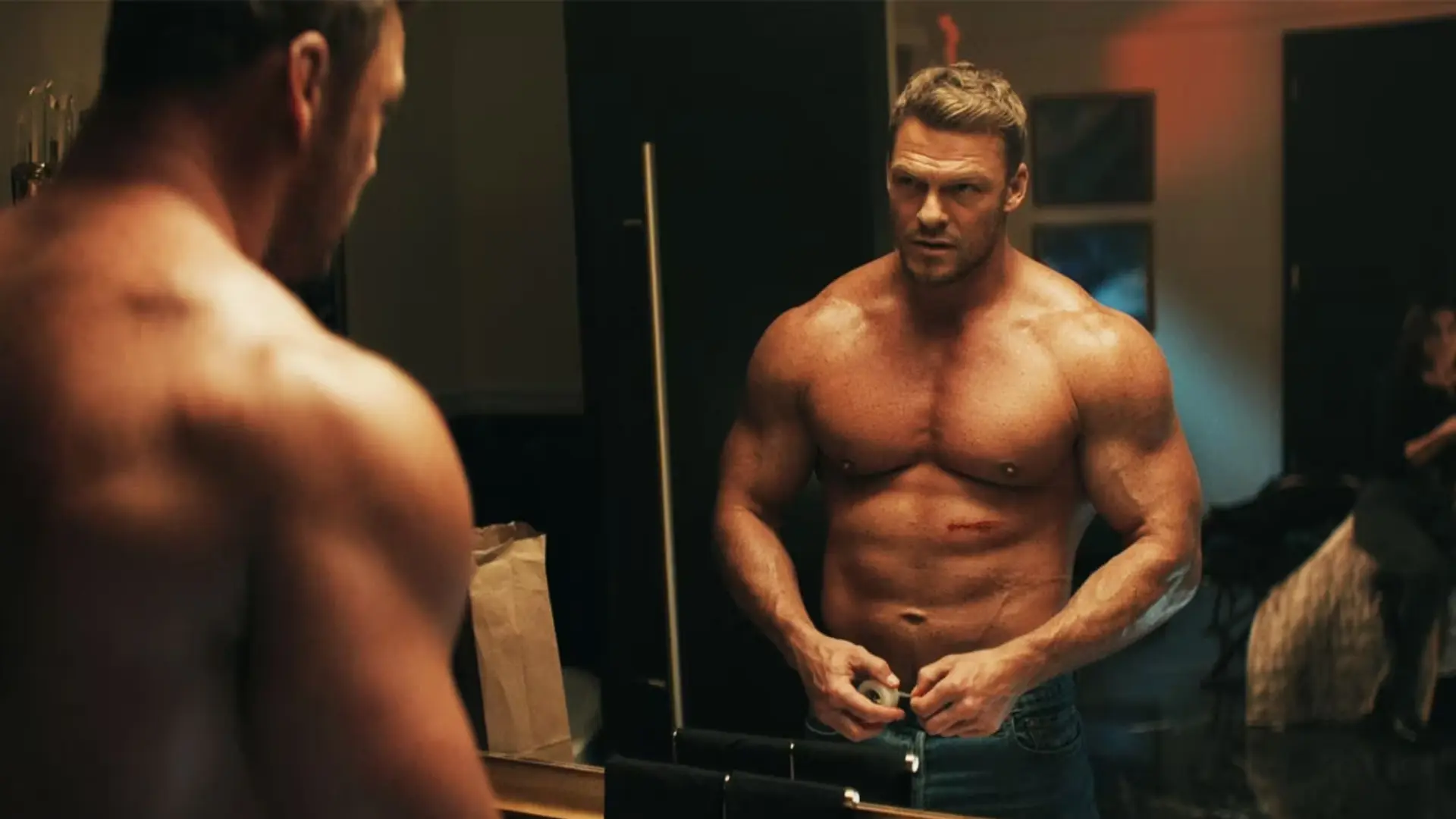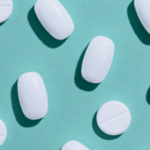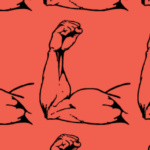Whether your social media feed is thirsty or fitspo, you might have seen images of a ripped Alan Ritchson recently. He’s the star of the TV show Reacher (about a former military police officer who drifts across the US solving crimes, based on the Lee Child novels), and he’s just spoken to Men’s Health Magazine about getting in shape for the leading role. In addition to a rigorous workout routine and strict diet, the actor was candid about his use of Testosterone Replacement Therapy (TRT) to gain and maintain muscle. The 41-year-old says he turned to TRT after “struggling to maintain mass with Season 1’s demanding schedule” and an executive from the production team called him to tell him he’d lost too much weight. But here’s what you need to know about TRT and what it should actually be used for.
What is Testosterone Replacement Therapy?
Testosterone Replacement Therapy is used to treat medically diagnosed androgen deficiency or low testosterone. Testosterone is the main androgen (the main sex hormone) in men. It drives the physical changes that happen during male puberty, and it regulates things like sperm production, bone health, muscle mass and sex drive. It’s important for normal development and overall wellbeing. Androgen deficiency can be caused by genetic disorders, medical problems, damage to the testes or pituitary gland, cancer treatment, some types of infection or other diseases.
In Australia, TRT must be prescribed by a medical practitioner, usually a GP, after evaluation by a specialist in sexual medicine or endocrinology, or by a urologist. Once started, testosterone therapy is usually continued for life with strict monitoring. TRT is very effective for those with legitimate androgen deficiency. For these men, we know the benefits of the treatment are substantial and outweigh the risks. But for others? It can be unnecessary and even dangerous. Misusing or abusing androgens has been linked to serious conditions, including cardiovascular disease, liver damage and brain damage, with side effects including gynaecomastia, acne and infertility.
Misuse and abuse of androgens
Ritchson says he was “utterly fatigued and broken” with a shoulder injury requiring surgery after being tasked with putting on 13kgs for the first season of Reacher, and his doctor suggested he try TRT. “People can think what they want, but I work out very hard,” Ritchson says, but he added TRT has made it much easier to maintain his gains.
Steroid use isn’t new in Hollywood, but celebrity users aren’t often open about it, instead promoting their intense workout routines or strict diets as the reasons behind their dramatic body transformations. This can set unrealistic expectations for what those habits can achieve on their own and feed an impossible body ideal that men feel expected to match. We don’t know Ritchson’s medical history, and whether he actually had low testosterone before starting TRT, but discussing TRT as a way to get otherwise unattainable muscle growth could normalise and encourage its misuse and abuse in other men.
Ritchson also shared his support for TRT in ageing men.
“I’m a big advocate of it, especially for people in their forties or above,” he said. “[Men aren’t] aware that it’s out there, but it could be really life-changing. It could be a mood stabiliser for people… it can do a lot more than just help you be buff, but it certainly helped in my journey.”
The myth that men’s testosterone levels naturally fall with age has led to the misuse of androgens like testosterone in the hope of an unproven rejuvenating effect in middle-aged and older men. The level of testosterone in your blood changes throughout the day (it’s highest early in the morning) and throughout your life. Testosterone levels in men peak during adolescence and early adulthood. As men age there may be a small, gradual drop in testosterone, but this is often due to the effects of other conditions, such as obesity or diabetes. Being overweight and carrying weight around your waist is linked to lower testosterone levels, and weight loss can help increase testosterone. Healthy older men with normal body weight usually do not experience a significant drop in testosterone levels in their blood, and there is no such thing as ‘male menopause’ or ‘andropause’.
Understanding low testosterone
Symptoms of low testosterone include low energy levels, mood swings, irritability, poor concentration, reduced muscle strength and low sex drive. These symptoms often overlap with other illnesses, so it’s important to figure out the cause with the help of a health professional, rather than self-diagnosing and seeking out testosterone as a cure-all.
A reference range is used as a guide by testing laboratories and doctors to decide whether a person’s hormone levels are normal or low and whether treatment may be needed. A blood test can assess testosterone, luteinising hormone, follicle-stimulating hormone and prolactin.
The ‘normal’ testosterone reference range for healthy, young adult men extends across a wide range and may vary from 8 up to 30 nM. Most healthy people (95%) have hormone levels that fall within a standard reference range for their sex. However, a few healthy people (5%) have levels below the range. Due to this wide variability it needs to be understood that for some normal men, a morning level of 8 nM is their ideal level and does not mean they have androgen deficiency or low testosterone. This is why the diagnosis of low testosterone is not based on a simple blood test but includes a number of assessments, including a full medical history, physical examination and other tests.
Higher testosterone isn’t necessarily healthier.
“One healthy man can have a level of eight and be completely and utterly healthy or another man may sit with a level of 28 and be equally unhealthy — those numbers are right for that man. It’s not like the guy who’s on 28 nM is on too much or the guy who’s on a level of eight is on too little because that’s where his body is set to.”
– Prof McLachlan
You can think of it like height — perfectly healthy men can be 165cm or 205 cm, it’s just where you sit on the reference range.
Plenty of men feel frustrated by their doctor’s seeming unwillingness to prescribe TRT when they have what they perceive to be low testosterone. But it’s critical to understand that TRT isn’t something to be taken lightly. Misuse or abuse of steroids reduces the body’s own production of testosterone, and when you stop, it takes your body weeks to months to get back to making its own testosterone. Steroid dependence makes it difficult to stop misusing or abusing steroids, but stopping is necessary if you want to have children or if you develop health problems caused by abuse or misuse.
If you’re experiencing symptoms of low testosterone, go to see your doctor. They’ll discuss your symptoms, general health and habits, do a physical examination and order further testing if needed. An accurate diagnosis will help you find the right treatment. Avoid clinics or centres that advertise treatment for low T or low testosterone.















